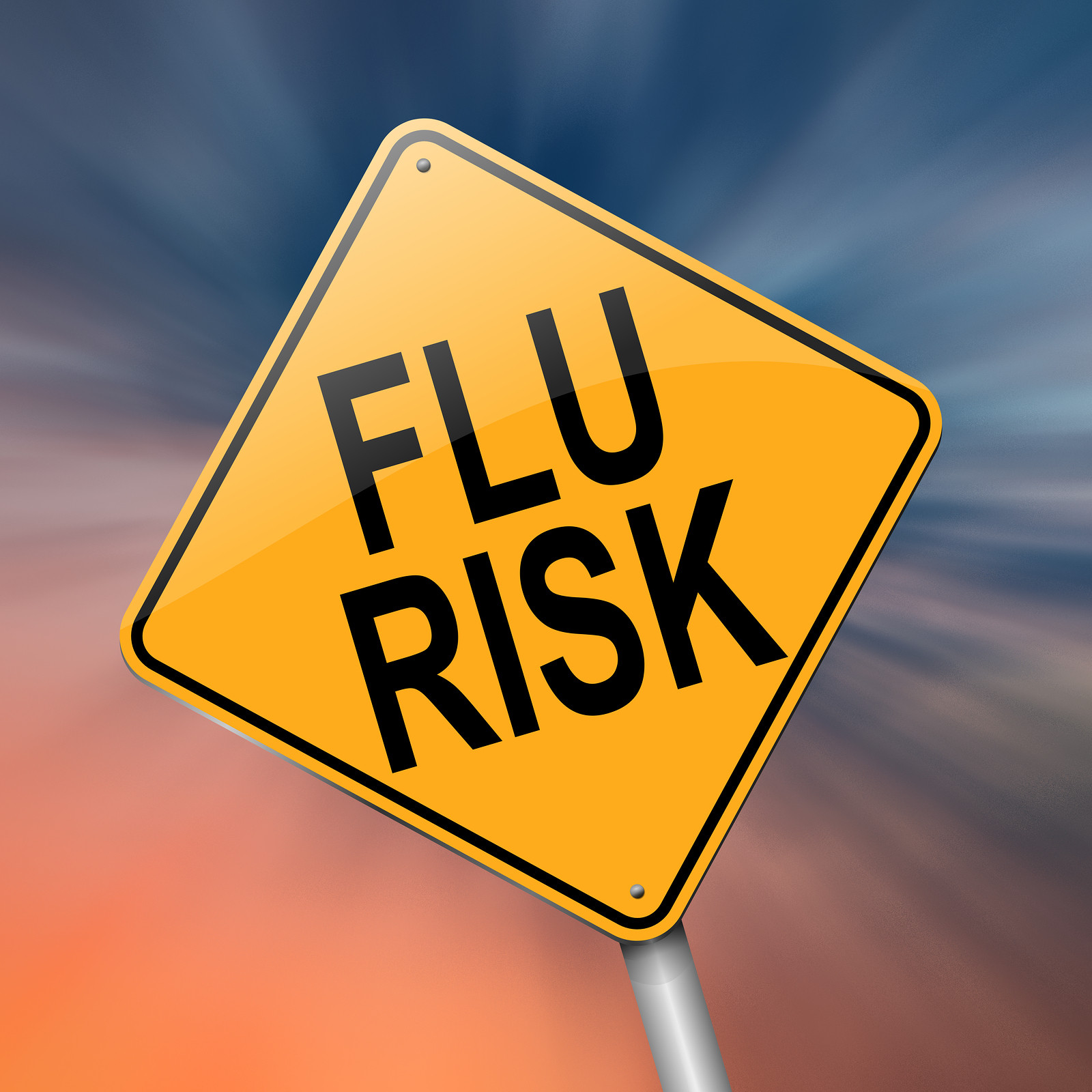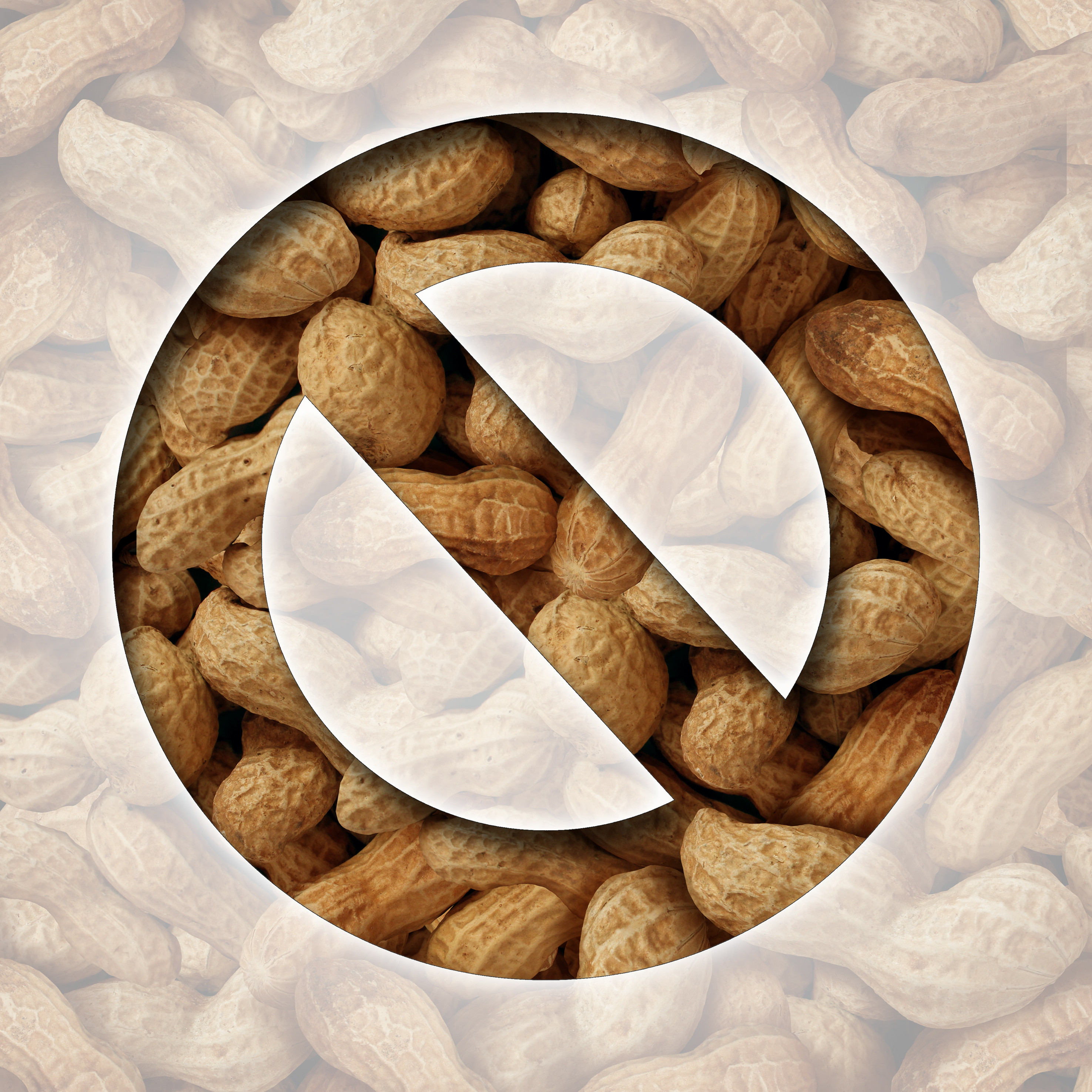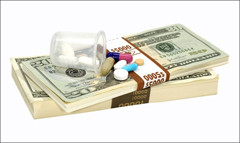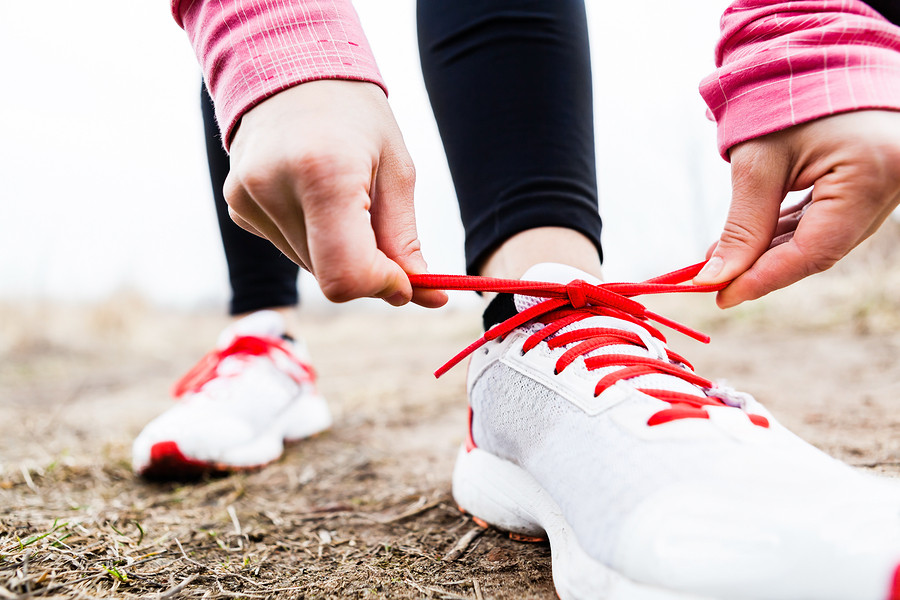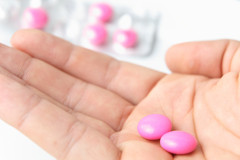
5 timeless habits for better health

What are the symptoms of prostate cancer?

Is your breakfast cereal healthy?

When pain signals an emergency: Symptoms you should never ignore

Does exercise give you energy?

Acupuncture for pain relief: How it works and what to expect

How to avoid jet lag: Tips for staying alert when you travel

Biofeedback therapy: How it works and how it can help relieve pain

Best vitamins and minerals for energy

Should you take probiotics with antibiotics?
Harvard Health Blog
Read posts from experts at Harvard Health Publishing covering a variety of health topics and perspectives on medical news.
Articles
Edible marijuana — a half-baked idea?
Marijuana-laced brownies have long been a way to get high. Now a new generation of “food companies” is taking the concept of edible marijuana in a somewhat scary new direction: marijuana-laced foods that mimic popular candies. These sweets could pose a danger to children, warns a Perspective article in today’s New England Journal of Medicine. From a marketing perspective, it’s a cute concept to sell Buddahfingers that look like Butterfingers, Rasta Reese’s that mimic Reese’s Peanut Butter Cups, or Pot Tarts that resemble Pop-Tarts. But the availability of edible marijuana products has led to an increase in emergency visits to hospitals because of kids accidentally eating edible marijuana products and in marijuana-related calls to poison and drug hotlines.
Vegetarian diet linked to lower colon cancer risk
Looking for ways to ward off colorectal cancer? According to a new study, a pescovegetarian diet — that’s a vegetarian diet that includes fish — was linked to a 43% reduction in the risk of developing colorectal cancer. The study, published in JAMA Internal Medicine, adds more support to the notion that something in red meat, or the way it is cooked, encourages the growth of colorectal cancer. It’s also possible that eating more plant foods provides extra beneficial nutrients such as folate, calcium, and fiber that may protect against colorectal cancer. Fish contain healthful omega-3 fats and vitamin D. Another good strategy for preventing harm from colorectal cancer, the second leading cause of cancer death in the United States? Have colonoscopies as needed.
A woman’s testosterone-based vaginal cream linked to elevated testosterone in her husband
A woman’s use of a testosterone-based vaginal cream may have contributed to a spike in her husband’s prostate-specific antigen and testosterone levels after he had his prostate removed to fight advanced prostate cancer.
Peanuts linked to same heart, longevity benefits as more pricey nuts
Nuts have been gaining traction as an all-natural health food. Tree nuts like almonds, pecans, and walnuts are especially prized for their rich cargo of vitamins, minerals, and mono- and polyunsaturated fats. The downside is that tree nuts tend to be pricey. But a study published online this week in JAMA Internal Medicine puts the humble peanut squarely in the same nutritional league as its upscale cousins. This work makes the health benefits of nuts more accessible to lower-income shoppers. An international team of researchers found that in more than 200,000 people from Savannah to Shanghai, those who regularly ate peanuts and other nuts were substantially less likely to have died of any cause — particularly heart disease — over the study period than those who rarely ate nuts. A key take-home message from this study is that eating peanuts appears to be just as potent for preventing heart disease as eating other nuts.
Will the Supreme Court send Obamacare into a death spiral?
The Supreme Court heard arguments this morning in a case that could threaten the viability of the Affordable Care Act, President Obama’s signature health care law. The law, also known as Obamacare, survived a previous Supreme Court challenge in 2012. But this new case, called King vs. Burwell, has many people worried, and rightfully so. At issue in the case are the financial subsidies provided to millions of Americans to buy health insurance through the insurance marketplaces, called exchanges. Without these subsidies, many people of lower income would not be able to afford coverage. Stopping these subsidies would put a big dent in the “affordable” part of the law’s name. The plaintiffs argue that the Affordable Care Act allows for subsidies to be provided when insurance is purchased on exchanges “established by the State” (there are 17 of these), but not on the exchange established by the federal government for the other states. The outcome of the case may hinge on how the justices interpret those four words in the health law.
This year’s flu vaccine “disappointing” against main flu virus
Some years the flu vaccine works quite well. Other years it doesn’t. It has done a particularly poor job this year against the main flu virus. The CDC reported yesterday that this year’s flu vaccine has been just 18% effective. The estimate for children is even lower. And it looks like the nasal spray vaccine may not have worked at all among children. One reason for this year’s mismatch between virus and vaccine is that experts must decide months in advance which of the hundreds of flu viruses to include in the vaccine. What became the dominant flu virus this year, a new strain of H3N2 influenza A, wasn’t around last year when experts were determining this year’s vaccine.
Sauna use linked to longer life, fewer fatal heart problems
Sitting in a sauna is one way to chase away the cold. A new report in JAMA Internal Medicine makes this pastime even more appealing: regularly spending time in a sauna may help keep the heart healthy and extend life. Among 2,300 middle-aged Finnish men, those who took a sauna bath four or more times a week were less likely to have died over a 20-year period than those who took a sauna once a week or less. Frequent visits to a sauna were also associated with lower death rates from cardiovascular disease and stroke. Sauna baths are generally safe and likely beneficial for people with well-controlled coronary artery disease or mild heart failure, but may not be so hot for those with unstable angina or a recent heart attack. The high temperature in a sauna can boost the heart rate to a level often achieved by moderate-intensity physical exercise. Is sitting in a sauna the equivalent of exercising? No. But exercising and then taking a sauna seems like a very healthy routine.
Children who eat peanuts at an early age may prevent peanut allergies
Peanut allergies can cause severe and sometimes deadly allergic reactions. A new study holds out the possibility that peanuts themselves may prevent peanut allergies. An international team asked parents of infants who were prone to a peanut allergy to give their children a peanut-based snack called Bamba or peanut butter three times a week until age five. The parents of another group of peanut allergy-prone infants were asked to make sure their children didn’t eat any peanuts, peanut butter, or other peanut-based products until age five. The results were surprising and dramatic. A peanut allergy developed in 1.9% of children who ate Bamba or peanut butter, compared with 13.7% of those who didn’t eat peanuts. This new work suggests that preventing peanut allergies may be a possibility in the near future.
New vaccine is an important advance in stopping cervical and other HPV-related cancers
If you knew that a vaccine could prevent your daughter or son from developing a relatively common and potentially deadly cancer later in life, would you have her or him get it? Such a vaccine is available, and it’s about to get even better than it is now — but fewer than half of all teens have gotten it. The vaccine helps prevent infection with the human papilloma virus (HPV). It is responsible for cervical cancer, which strikes 12,000 women each year in the United States and kills 4,000. HPV also causes cancer of the vulva, vagina, penis, anus, mouth, and throat. The vaccine, approved in 2006, attacks four types of HPV. The new one attacks nine types, and can help prevent most types of cervical cancer. Some parents worry that having their pre-teen daughters and sons vaccinated against HPV will nudge them into becoming sexually active or becoming sexually promiscuous. Studies, including a new one from Harvard, show that doesn’t happen.
Panel suggests that dietary guidelines stop warning about cholesterol in food
Warnings against eating foods high in cholesterol, like eggs or shrimp, have been a mainstay of dietary recommendations for decades. That could change if the scientific advisory panel for the 2015 iteration of the Dietary Guidelines for Americans has its say. A summary of the committee’s December 2014 meeting says “Cholesterol is not considered a nutrient of concern for overconsumption.” Translation: You don’t need to worry about cholesterol in your food. Why not? There’s a growing consensus among nutrition scientists that cholesterol in food has little effect on the amount of cholesterol in the bloodstream. And that’s the cholesterol that matters. Doing away with the beware-cholesterol-in-food warning would simplify the art of choosing healthy foods. And it would let people enjoy foods that contain higher amounts of cholesterol, such as eggs, shrimp, and lobster, without worrying about it. A better focus is on reducing saturated fat and trans fat in the diet, which play greater roles in damaging blood vessels than dietary cholesterol.
For joggers, less may be more
Jogging is one of those activities that seems to embody the concept of healthy physical activity. A new study from Denmark may prompt a rethinking of the benefits of strenuous jogging. Researchers with the ongoing Copenhagen City Heart Study found that, compared to healthy but inactive non-joggers, the death rate of light joggers was 90% lower. No surprise there. But the death rate for strenuous joggers was no different than that of sedentary non-joggers. In this study, the most beneficial exercise was jogging at a slow or moderate pace two to three times a week for a total of 60 to 145 minutes. This one study certainly shouldn’t change the current recommendations for physical activity. But it helps debunk the “no pain, no gain” myth of exercise and supports the idea that any activity is better than none—but there may be an upper limit.
Cocoa: a sweet treat for the brain?
There are many reasons why you might want to give someone chocolate on Valentine’s Day. There’s the tradition of it, and the idea of sweets for your sweetheart. Here’s another tempting reason: certain compounds in chocolate, called cocoa flavanols, have recently been linked with improved thinking skills. Italian researchers found people who drank a daily cocoa brew with a lot of flavanols (more than 500 milligrams) significantly improved their scores on tests that measured attention, executive function, and memory. How might cocoa flavanols boost thinking skills? They may help brain cells connect with each other. Dark chocolate is a good source of flavonols. It’s also a good source of calories. Adding it to your diet without taking out other foods can lead to weight gain, which may wipe out any health gain.
Millions of adults skip medications due to their high cost
Medications can do wonderful things, from fighting infection to preventing stroke and warding off depression. But medications don’t work if they aren’t taken. Some people don’t take their medications as prescribed because they forget, or are bothered by side effects. A new report from the National Center for Health Statistics shines the light on another reason: nearly 1 in 10 people skip medications because they can’t pay for them. Other strategies for saving money on drug costs included asking doctors for lower-cost medications, buying prescription drugs from other countries, and using alternative therapies. Not taking medications as prescribed can cause serious problems. It can lead to unnecessary complications related to a medical condition. It can lead to a bad outcome, like a heart attack or stroke. It can also increase medical costs if hospitalization or other medical interventions are needed. Safe money-saving options include using generic drugs when possible, pill splitting, shopping around, and making lifestyle changes such as exercising more and following a healthier diet, which can sometimes decrease the number and dose of drugs needed.
Prostate cancer in second- and third-degree relatives elevates risk
Men are at greater risk for developing prostate cancer if their fathers or brothers also developed the disease. A new study shows that having second- or third-degree relatives with the disease also increases a man’s risk.
Being part of a walking group yields wide-ranging health benefits
If you are a sociable soul, here’s some interesting news about exercising with others: A study published online in the British Journal of Sports Medicine shows that being part of an outdoor walking group can improve health in many ways, including improvements in blood pressure, resting heart rate, total cholesterol, body weight, body fat, physical functioning, and risk of depression. In addition, people who were part of a walking group tended to keep exercising and not slack off. The findings are interesting because walking group participants reaped health benefits even though many of the groups did not meet international guidelines for moderate activity. This supports the idea that any activity is better than none.
Some exercise beats none; more is better
The standard recommendation for exercise is at least 150 minutes of moderate-intensity activity each week. But that may not be the best recommendation for everyone, especially those who are older and have trouble exercising, or those who don’t exercise at all. If we think of exercise as a spectrum, with no activity on one end and 150 minutes or more a week on the other end, there’s a continuum in between. Getting individuals to move along that continuum, from no exercise to a little, a little to more, and so on, is an important goal. New research on the hazards of sitting for prolonged periods should get all of us to sit less and stand or move more.
Too much sitting linked to heart disease, diabetes, premature death
More than half of the average person’s waking hours are spent sitting: watching television, working at a computer, commuting, or doing other physically inactive pursuits. But all that sitting could be sending some to an early grave. That’s the conclusion of a Canadian study published in this week’s Annals of Internal Medicine. People in the study who sat for prolonged periods of time had a higher risk of dying from all causes — even those who exercised regularly. The negative effects were even more pronounced in people who did little or no exercise. In addition to premature death, the study documented higher rates of type 2 diabetes, cancer, and cancer-related deaths in very sedentary people. If you sit for work, try standing or moving around for one to three minutes every half hour. Better yet, think about working at a standing desk. At home, stand when watching TV or talking on the phone.
People with type 1 diabetes are living longer
Ninety years ago, type 1 diabetes was a death sentence: half of people who developed it died within two years; more than 90% were dead within five years. Thanks to the introduction of insulin therapy in 1922, and numerous advances since then, many people with type 1 diabetes now live into their 50s and beyond. But survival in this group still falls short of that among people without diabetes. A Scottish study published this week in JAMA shows that at the age of 20, individuals with type 1 diabetes on average lived 12 fewer years than 20-year-olds without it. A second study in the same issue of JAMA showed that people with type 1 diabetes with better blood sugar control lived longer than those with poorer blood sugar control.

5 timeless habits for better health

What are the symptoms of prostate cancer?

Is your breakfast cereal healthy?

When pain signals an emergency: Symptoms you should never ignore

Does exercise give you energy?

Acupuncture for pain relief: How it works and what to expect

How to avoid jet lag: Tips for staying alert when you travel

Biofeedback therapy: How it works and how it can help relieve pain

Best vitamins and minerals for energy

Should you take probiotics with antibiotics?
Free Healthbeat Signup
Get the latest in health news delivered to your inbox!
Sign Up





